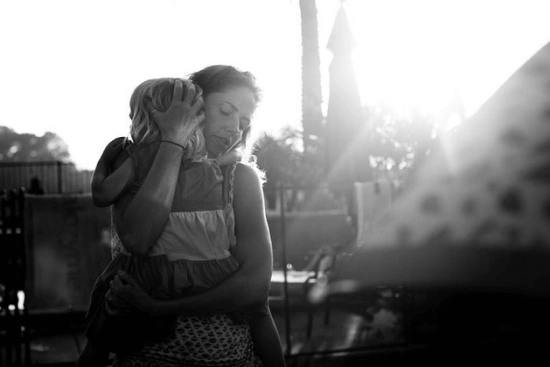1
Dies sind die Rechte, die du ihnen sollst vorlegen:
2
So du einen ebräischen Knecht kaufest, der soll dir sechs Jahre dienen; im siebenten Jahr soll er frei ledig ausgehen.
3
Ist er ohne Weib kommen, so, soll er auch ohne Weib ausgehen. Ist er aber mit Weib kommen, so soll sein Weib mit ihm ausgehen.
4
Hat ihm aber sein HERR ein Weib gegeben und hat Söhne oder Töchter gezeuget, so soll das Weib und die Kinder seines HERRN sein; er aber soll ohne Weib ausgehen.
5
Spricht aber der Knecht: Ich habe meinen HERRN lieb und mein Weib und Kind, ich will nicht frei werden,
6
So bringe ihn sein HERR vor die Götter und halte ihn an die Tür oder Pfosten und bohre ihm mit einem Pfriemen durch sein Ohr; und er sei sein Knecht ewig.
7
Verkauft jemand seine Tochter zur Magd, so soll sie nicht ausgehen wie die Knechte.
8
Gefällt sie aber ihrem HERRN nicht und will ihr nicht zur Ehe helfen, so soll er sie zu lösen geben. Aber unter ein fremd Volk sie zu verkaufen, hat er nicht Macht, weil er sie verschmähet hat.
9
Vertrauet er sie aber seinem Sohn, so soll er Tochterrecht an ihr tun.
10
Gibt er ihm aber eine andere, so soll er ihr an ihrem Futter, Decke und Eheschuld nicht abbrechen.
11
Tut er diese drei nicht, so soll sie frei ausgehen ohne Lösegeld.
12
Wer einen Menschen schlägt, daß er stirbt, der soll des Todes sterben.
13
Hat er ihm aber nicht nachgestellet sondern Gott hat ihn lassen ohngefähr in seine Hände fallen, so will ich dir einen Ort bestimmen, dahin er fliehen soll
14
Wo aber jemand an seinem Nächsten frevelt und ihn mit List erwürget, so sollst du denselben von meinem Altar nehmen, daß man ihn töte.
15
Wer seinen Vater oder Mutter schlägt, der soll des Todes sterben.
16
Wer einen Menschen stiehlt und verkaufet, daß man ihn bei ihm findet, der soll des Todes sterben.
17
Wer Vater oder Mutter flucht, der soll des Todes sterben.
18
Wenn sich Männer miteinander hadern, und einer schlägt den andern mit einem Stein oder mit einer Faust, daß er nicht stirbt, sondern zu Bette liegt:
19
kommt er auf, daß er ausgehet an seinem Stabe so soll, der ihn schlug, unschuldig sein, ohne daß er ihm bezahle, was er versäumet hat, und das Arztgeld gebe.
20
Wer seinen Knecht oder Magd schlägt mit einem Stabe, daß er stirbt unter seinen Händen, der, soll darum gestraft werden.
21
Bleibt er aber einen oder zween Tage, so soll er nicht darum gestraft werden; denn es ist sein Geld.
22
Wenn sich Männer hadern und verletzen ein schwanger Weib, daß ihr die Frucht abgehet, und ihr kein Schade widerfährt, so soll man ihn um Geld strafen, wieviel des Weibes Mann ihm auflegt, und soll's geben nach der Teidingsleute Erkennen.
23
Kommt ihr aber ein Schade daraus, so soll er lassen Seele um Seele,
24
Auge um Auge, Zahn um Zahn, Hand um Hand, Fuß um Fuß,
25
Brand um Brand, Wunde um Wunde, Beule um Beule.
26
Wenn jemand seinen Knecht oder seine Magd in ein Auge schlägt und verderbet es, der soll sie frei loslassen um das Auge.
27
Desselbigengleichen, wenn er seinem Knecht oder Magd einen Zahn ausschlägt, soll er sie frei loslassen um den Zahn.
28
Wenn ein Ochse einen Mann oder Weib stößet, daß er stirbt, so soll man den Ochsen steinigen und sein Fleisch nicht essen; so ist der HERR des Ochsen unschuldig.
29
Ist aber der Ochse vorhin stößig gewesen, und seinem HERRN ist's angesagt, und er ihn nicht verwahret hat, und tötet darüber einen Mann oder Weib, soll man den Ochsen steinigen, und sein HERR soll sterben.
30
Wird man aber ein Geld auf ihn legen, so soll er geben, sein Leben zu lösen, was man ihm auflegt.
31
Desselbigengleichen soll man mit ihm handeln, wenn er Sohn oder Tochter stößet.
32
Stößet er aber einen Knecht oder Magd, so soll er ihrem HERRN dreißig silberne Sekel geben, und den Ochsen soll man steinigen.
33
so jemand eine Grube auftut, oder gräbt eine Grube und decket sie nicht zu, und fällt darüber ein Ochse oder Esel hinein,
34
so soll's der HERR der Grube mit Geld dem andern wieder bezahlen; das Aas aber soll sein sein.
35
Wenn jemandes Ochse eines andern Ochsen stößet, daß er stirbt, so sollen sie den lebendigen Ochsen verkaufen und das Geld teilen und das Aas auch teilen.
36
Ist's aber kund gewesen, daß der Ochse stößig vorhin gewesen ist, und sein HERR hat ihn nicht verwahret, so soll er einen Ochsen um den andern vergelten und das Aas haben.







